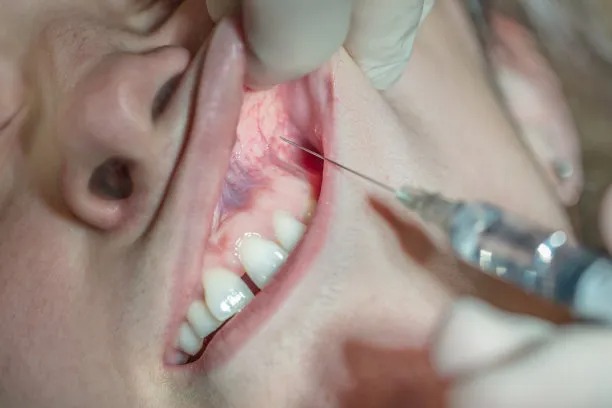Summary: Dental filling treatment is a common procedure essential for restoring damaged teeth and maintaining oral health. This article outlines essential guidelines to ensure that this treatment is safe and effective. By focusing on choosing the right dentist, understanding materials used, aftercare practices, and recognizing signs of complications, patients can better protect their oral health. Proper attention to these aspects can significantly enhance treatment outcomes and overall dental well-being.
1. Choose the Right Dentist for Treatment

Selecting the right dentist is fundamental to ensuring effective dental filling treatment. A qualified and experienced dentist will not only assess your oral condition accurately but also recommend the most suitable filling materials. Patients should seek dental professionals who have good reviews and are known for their expertise in restorative dentistry.
Inquire about the dentists credentials and expertise in handling specific filling procedures. Checking memberships in professional organizations can also indicate a commitment to continuing education in the field. Personal recommendations from family or friends can also guide you towards a trusted practitioner.
It is essential to have an initial consultation where you can discuss any dental concerns. A good dentist will take the time to explain the procedure, the materials used, and expected outcomes, ensuring that you are comfortable and informed before undergoing treatment.
2. Understand the Materials Used in Fillings
Dental fillings can be made from various materials, including amalgam, composite resins, glass ionomer, and porcelain. Each material has its benefits and disadvantages, and understanding these can help patients make informed decisions. For instance, amalgam is durable and ideal for back teeth, while composite resins offer aesthetic benefits for front teeth.
Each type of filling material has different properties regarding longevity and resistance to wear. Patients should consult their dentist to determine which material is best suited for their specific needs, taking into account factors such as tooth location, the size of the cavity, and personal preferences.
Moreover, being aware of the materials and their potential reactions is vital for patients with allergies or sensitivities. Discussing these concerns with the dentist ensures that the chosen filling will not adversely impact oral health or cause discomfort post-treatment.
3. Follow Proper Aftercare Practices
After undergoing dental filling treatment, following the proper aftercare practices is crucial for optimal healing. Initially, patients may experience some sensitivity to hot or cold temperatures, which generally subsides. It is advisable to avoid extremely hot or cold foods for a few days after treatment.
Maintaining good oral hygiene is equally essential. Brushing and flossing regularly can prevent bacteria from accumulating around the new filling, lowering the risk of further dental issues. Patients should also avoid chewing hard foods on the filled tooth until they fully recover to prevent any damage to the filling.
Regular follow-up appointments are vital to ensure the filling remains intact and that there are no underlying issues. Your dentist will be able to monitor the filling鈥檚 effectiveness and make recommendations for further care as necessary.
4. Recognize Signs of Complications Early
After a filling, it is crucial to pay attention to potential signs of complications. Symptoms such as prolonged pain, discomfort while chewing, or visible cracks in the filling may indicate that the treatment requires further intervention. Early recognition of these signs can prevent more severe issues from developing.
Patients should also be alert for signs of infection, such as swelling, pus, or a bad taste in the mouth, which warrant immediate dental consultation. Prompt action can often save the tooth and prevent the need for more extensive procedures like root canals.
Maintaining regular check-ups with your dentist will ensure that any complications can be addressed swiftly, contributing to a successful dental care plan and the longevity of your dental fillings.
Summary:
Selecting the right dentist, understanding dental filling materials, adhering to aftercare practices, and recognizing sign of complications are vital aspects to ensuring a safe and effective dental filling treatment. These guidelines not only protect your oral health but enhance your overall dental care experience, laying the foundation for healthier teeth.
This article is compiled by Vickong Dental and the content is for reference only.
Vickong Dental
Vickong Dental is a large medical group established in Hong Kong in 2008 by professors from well-known medical universities in Guangdong and Hong Kong, as well as medical doctors from key national '985' universities (including Master's supervisors and senior professors). The chain of branches brings together expert dentists with PhDs and Master's degrees from Hong Kong and Mainland China, committed to providing high-quality dental treatment.
"Vickong Dental Practices the University Motto of 'Healing and Serving Society,' with a Stable Operation for Sixteen Years. It Has Been honored with Hong Kong Enterprise Leaders's Choice,' and is a Global Trusted Implant Center for the Nobel Implant System. Recommended by Hong Kong Metro Broadcast and Guangdong Television, it Serves Customers from Over Thirty Countries and Regions, Gaining the Trust and Favor of Citizens from the Guangdong-Hong Kong-Macau Greater Bay Area and Surrounding Cities.

Thousands of customers' unanimous praise
The most recognized and highly recommended dental service by customers in the Guangdong-Hong Kong-Macau Greater Bay Area
We Ensure You Receive Detailed Care and Attention Here
Hong Kong standards, Shenzhen prices, Your Trusted English-speaking dentists

Vickong Dental Medical-Grade Instrument Disinfection Process
Vickong Dental Medical-Grade Instrument Disinfection Process

Vickong Dental Chain: A Warm and Comfortable Environment for Treatment






Appointment Hours

Q&A
Why choose Vickong Dental?
Vickong Dental practices the university motto 「Medicine to Benefit Society」, with each branch bringing together highly qualified dentists with doctoral and master’s degrees from Hong Kong and the Mainland, and has maintained seventeen years of steady operation。Recipient of 「2024 Hong Kong Enterprise Leaders Brand」, 「2025 Hong Kong Enterprise Leaders Brand」, a Nobel Biocare Global Trusted Implant Center, and a brand recommended by Metro Radio Hong Kong and Guangdong TV。
To date, we have served customers from more than thirty countries and regions,earning exceptionally high word-of-mouth recognition and trusted recommendations from residents across the Guangdong-Hong Kong-Macao Greater Bay Area and surrounding cities
We have eight major branches in Zhuhai、Shenzhen,and a consultation and service assurance center in Hong Kong,so you can book a free consultation at any time for any questions,which is very reassuring.
If I do not accept the quotation after the CT scan, will I be charged??
No! As long as the actual treatment has not started, you will not be charged any fees.
Will there be any additional charges during the treatment process?
No, there won’t be any additional charges. Before treatment begins, we will clearly explain the treatment plan and its corresponding fees. Only after the patient agrees and signs the consent form will we proceed with the dental service.
Can I pay in Hong Kong dollars?
Yes. Vickong Dental accepts payment in Hong Kong dollars. The amount will be converted based on the exchange rate of the day, and the applicable rate will be clearly communicated to you in advance.
Can I reschedule my appointment at any time?
Yes. Please contact us via **WeChat** or **WhatsApp** as early as possible, providing your original appointment time and details, along with your preferred new date and time slot for rescheduling.













